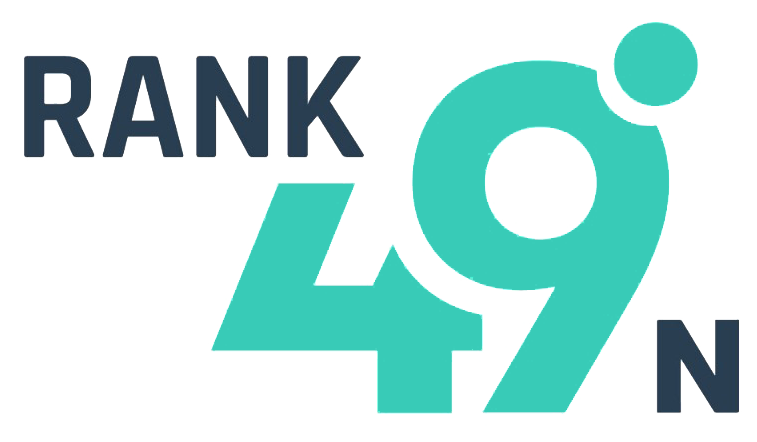Frequently Asked Questions
SEO (Search Engine Optimization) means improving your website so it appears higher in search results on Google and other search engines. It’s important because the higher you rank, the more likely people are to visit your site. More visitors can lead to more inquiries, customers, and sales.
SEO works by making your website easier for search engines to understand. You create useful content, organize your pages, and earn trust from other reputable websites. When search engines see that your site is helpful, they’re more likely to show it to people searching for what you offer.
Most businesses start seeing noticeable changes in about 3 to 6 months. The exact time depends on how competitive your industry is and how much work is needed. With patience and consistent effort, your rankings and traffic should steadily improve.
1. On-Page SEO: Improving the pages on your site (content quality, keywords, titles, images).
2. Off-Page SEO: Building your online reputation, mainly through links from other trusted websites.
3. Technical SEO: Ensuring your site is fast, mobile-friendly, secure, and easy for search engines to explore.
1. On-Page SEO: Changes you make directly on your website (such as writing helpful articles, using the right keywords, and organizing your content).
2. Off-Page SEO: Actions you take outside your website (like earning links from other reputable sites and being active on social media) to build trust and authority.
Keywords are the terms people type into search engines. Using relevant keywords helps connect your site with people looking for your products or services. To choose good keywords, think about what your customers search for, check which words are popular using keyword tools, and pick the ones that best match what you offer.
Good content attracts and keeps visitors on your site. If your pages answer their questions, they’re more likely to stay, share, and return. Search engines notice this positive engagement and may reward you with higher rankings.
Backlinks are links from other websites pointing to yours. They’re like “votes of confidence.” When respected sites link to you, it signals to search engines that your content is trustworthy and valuable, which can boost your rankings.
Search engines use formulas (algorithms) that consider many factors, such as the quality of your content, the credibility of sites linking to you, how user-friendly and mobile-friendly your site is, and how fast it loads. The better you meet these criteria, the higher you can rank.
People often search on their phones, and they don’t like waiting for slow pages. Search engines prefer sites that load quickly and work well on mobile devices. By making your site fast and mobile-friendly, you can improve your rankings and user satisfaction.
Local SEO helps your business appear in searches for people nearby. If someone searches for “coffee shop near me,” local SEO can help your café show up. This is crucial if you rely on local customers or have a physical store.
Tools like Google Analytics and Google Search Console let you see how many people visit your site, which pages they view, and which search terms they use. You can also track changes in your search rankings over time.
1. Google Analytics & Search Console: Track traffic and find issues.
2. SEMrush, Ahrefs, Moz: Research keywords, analyze competitors, and check backlinks.
3. Screaming Frog: Audit technical aspects of your site.
No. SEO depends on many factors, including competitors and search engine updates. Ethical SEO focuses on proven strategies that increase your chances over time, but no one can promise the top spot.
Search engines update their algorithms to improve search quality. These changes might shift rankings. By focusing on long-term best practices—helpful content, good user experience, and trusted backlinks—you can stay prepared and make adjustments as needed.
While social media doesn’t directly increase your ranking, it can help more people discover your content. The more engagement and shares you get, the more likely you’ll gain visitors and potentially earn valuable backlinks.
We start by understanding your business goals and audience. Then we research the best keywords, review your site’s current state, fix any technical issues, create or improve content, build quality backlinks, and track your progress. We adjust our approach as we see what works best.
We focus on earning high-quality backlinks naturally by creating valuable content, reaching out to industry partners, and sometimes writing guest posts. We avoid shortcuts or spammy tactics, focusing instead on building a strong, trustworthy reputation.
An SEO audit reviews your site’s content, structure, speed, mobile-friendliness, and backlinks. It identifies what’s working, what’s not, and what can be improved. This helps guide your SEO efforts so you know where to focus for better results.
Yes. We follow search engine guidelines, create valuable content, and build authentic links. This ensures long-term success and avoids penalties that can arise from risky shortcuts.
If problems occur, we investigate the cause—maybe outdated content, poor-quality links, or a technical glitch. We fix the issues, communicate openly about what happened, and work on a plan to recover lost ground.
Yes, we can provide case studies and references that highlight the strategies we used, the improvements made, and the results achieved for other clients.
We compare metrics like website traffic, leads, or sales before and after implementing SEO strategies. By showing you these changes over time, you can see the impact of our work on your bottom line.
Yes, we can provide additional services to support your SEO efforts, such as writing articles, managing social media, or running online ad campaigns to boost overall online visibility.
SEO is an ongoing process. We continuously monitor performance, update your content, adapt to changes in search algorithms, and look for new opportunities to improve. This long-term approach keeps your site competitive and visible over time.
We usually provide monthly or quarterly updates, depending on your preference. These reports include data on traffic, rankings, and other key metrics, along with recommendations for next steps. We can also schedule calls or meetings to discuss progress and answer your questions.
